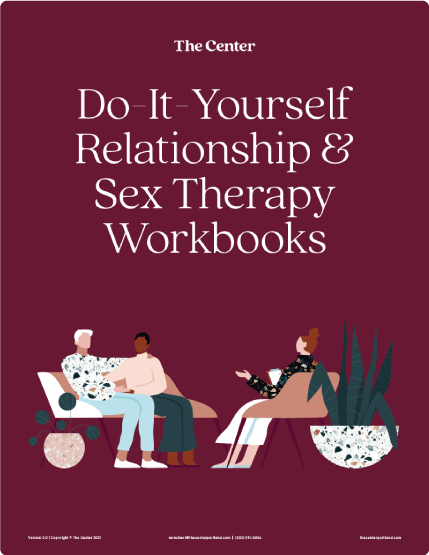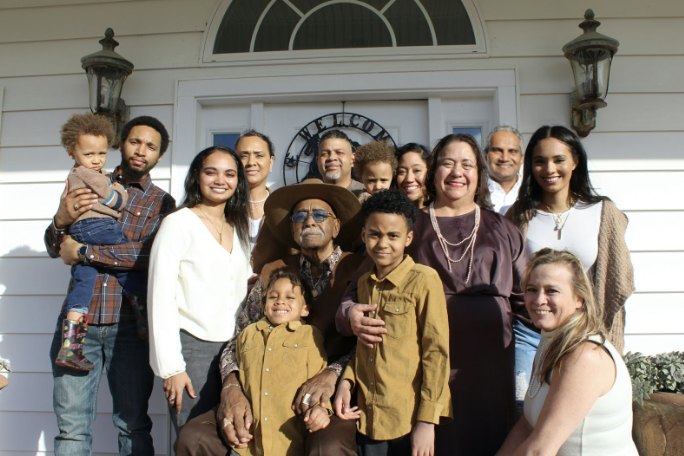It can start off like this: You’re lying in bed next to your partner. You love them. You feel close. Maybe you even want to feel more connected. But nothing’s happening. There’s no spark. No turn-on. No desire. Just a quiet, frustrating sense of *something’s off.*
Maybe your partner reaches for you. Maybe you pull away. Or pretend to be asleep. You’re not trying to reject them. You just don’t know how to explain what’s going on in your body, or why it’s not doing what it “should.”
And then the doubts start creeping in.
“Is something wrong with me?” “Why am I never in the mood?” “Do they think I’m not attracted to them anymore?” “Are we broken?”
Sexual arousal is often painted as this automatic, physical thing. Like a light switch: someone touches you, boom, you’re ready. That might be true sometimes…but not always. And definitely not for everyone.
Arousal is so much more than just what your body is doing. It’s emotional. It’s psychological. It’s relational. It’s contextual.
And yes, it’s incredibly normal to struggle with it.
What Is Sexual Arousal, Really?
We tend to think of arousal as just “physical readiness for sex”, like erections, lubrication, genital response. But in reality, arousal is more like your body and brain working together to respond to stimulation, if the conditions are right.
And those “right” conditions? They vary wildly from person to person.
Research shows that arousal is not just your genitals reacting. Your brain plays a central role in deciding what’s exciting and what’s threatening. According to the “dual control model of arousal”, you have both an accelerator (what turns you on) and a brake (what turns you off).
If you’re anxious, distracted, or emotionally disconnected, even the hottest touch might not register as sexy. Your brain is doing its job, protecting you by tapping the brake.
Sexual Arousal Is Contextual
You and your partner are on a weekend getaway. No kids. No laundry. No work emails. You’re sipping wine, touching more, laughing easily. Suddenly, you want them. You feel good. You feel open.
Now picture this: It’s a regular Tuesday. You’re exhausted. You had 3 hard conversations today. You argued about groceries. There are dishes in the sink and socks on the floor. Your body? Numb. Tense. Nowhere close to turned on.
This is how context affects arousal.
It’s about how safe, relaxed, connected, and emotionally open you feel in a given moment. It’s not about how much you love them.
When Arousal Doesn’t Match
Sometimes one partner wants sex more often than the other. Sometimes one partner gets aroused more easily. Or responds more to physical touch, while the other needs emotional intimacy first.
This is called mismatched arousal, and it’s common. Really common.
But if you don’t talk about it, it can create distance. One of you might feel rejected. The other feels pressured. And soon, what used to feel exciting now feels loaded with guilt, frustration, or shame.
You have to learn to navigate these differences with curiosity, not criticism.
Emotional Blocks to Arousal
Maybe you’re not just tired or having a hard day. Sometimes deeper emotional layers are getting in the way.
You might be dealing with:
- Body image struggles
- Past trauma
- Resentment or unresolved conflict in the relationship
- Low self-esteem
- Shame around sexuality or desire
According to the “sexual response cycle” and newer research on arousal and desire, emotional safety plays a key role in how and when arousal kicks in. That means factors like past trauma, shame, or low self-worth can all interrupt or override the body’s physical response, even when you’re mentally open to intimacy.
These things don’t just magically disappear when the lights go out. They show up. And they can dampen arousal, even when you want to want sex.
That’s why it’s so important to be kind to yourself. To remember that your brain and body are trying to protect you. Even if it’s not always convenient.
So What Can You Do?
Whether you’re struggling with low desire, mismatched libidos, or just feeling a little “off”, here are a few simple, practical ways to start reconnecting with your arousal,
- Talk About It (Without Blaming or Shaming)
Start with honesty. Even a little bit.
“I’ve noticed I haven’t felt as into sex lately. I don’t want to ignore it. I want us to talk about it.”
Keep the focus on your experience, not what the other person is doing wrong. Think of it as inviting your partner into curiosity with you.
2. Explore What Turns You On, without Pressure
Take time to notice what you like. This could be:
- Reading something steamy
- Watching a romantic or sensual scene
- Fantasizing
- Remembering a moment that felt really good
Sometimes, giving yourself space to explore solo (yes, masturbation counts!) can help you reconnect with your own sense of pleasure without the pressure of performing.
3. Make Time for Non-Sexual Touch
Not every cuddle has to lead to sex. In fact, touching without expectation can build safety, connection, and even reignite arousal over time.
Think: holding hands, back rubs, kissing like you used to. Let it be about feeling close, not about getting somewhere.
4. Prioritize Emotional Connection
If resentment, stress, or disconnection are in the air, arousal will probably stay underground.
Check in with each other. Go on a walk. Apologize. Laugh. Repair. Talk about something not related to logistics or kids or bills.
Emotional closeness often paves the way for physical closeness.
5. Get Support if You’re Stuck
Sometimes the gap feels too big to bridge alone. And that’s okay. Working with a couples or sex therapist can help you:
- Understand what’s going on under the surface
- Learn new ways to connect
- Heal past wounds that may be impacting your sex life
- Build a deeper, more satisfying intimacy
Here at The Center for Couples and Sex therapy, we create space for these honest conversations without shame, awkwardness, or pressure. Whether you’re feeling shut down, misunderstood, or just confused about what’s going on in your body, you’re not alone.
This is normal. This is human. This is fixable.
You deserve pleasure, connection, and understanding. And it’s okay to ask for help along the way.
Your body isn’t broken. Your relationship isn’t doomed. Sometimes, you just need a new path in.







